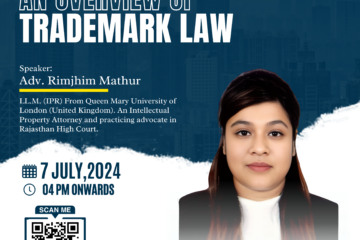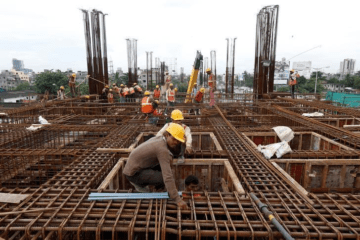| CITATION | 2023 SCC ONLINE SC |
| DATE OF JUDGEMENT | 22nd March 2023 |
| COURT | Supreme Court of India |
| APPELLANT | Thirumoorthy |
| RESPONDENT | State represented by the inspector of Police |
| BENCH | Justice B R Gavai and Justice Sandeep Mehta |
INTRODUCTION
Sections 15 and 19 of the Juvenile Justice (Care and Protection of Children) Act, 2015; Section 6 of the Protection of Children from Sexual Offences Act, 2012; Sections 302, 342 and 363 of the Indian Penal Code, 1860; Section 374(2) of the Criminal Procedure Code, 1973; Juvenile in conflict with the law. – Conviction and sentence. Even when the charge-sheet was filed, the investigating officer clearly recorded that the accused’s date of birth was May 30, 2000, and even assuming that Sessions Court had been designated as a Children’s Court, there was no option for said Court but to forward the child to the concerned Board for further directions. – Offenses of which accused appellant was charged fall within the category of ‘heinous offences’ as defined under Section 2(33) of JJ Act – Procedure provided under Sections 15 and 19 has been held to be mandatory – In the absence of a preliminary assessment being conducted by the Board under Section 15, and without an order being passed by the Board under Section 15(1) read with Section 18(3), it was impermissible for the trial Court to accept the charge-sheet and proceed with the accused’s trial.
FACTS OF THE CASE
Following that, the Probation Officer should evaluate the child’s reformation and submit a periodic report to this Court. After 21 years, the child shall be brought before this Court, and after determining whether the child has reformed and become a child who can contribute to society, the remaining sentence may be reduced and released, or if the child has not been reformed, the remaining sentence should be served in jail after the child reaches the age of 21, taking into account the Probation Officer’s report and progress records. The decision will be made based on the child’s discipline record and behaviour.
- Brief facts necessary for the appeal’s resolution are provided below.
- The victim. Ms. D, the 6-year-old daughter of the first informant Mr. G, went missing on the evening of July 2, 2016. Mr. G filed a complaint at P.S. Kolathur, District Salem, on July 3, 2016, at 7 a.m., alleging, among other things, that he had taken his daughter (victim) to a shop the previous evening at around 6 p.m. and then asked the child to return home. However, when he returned home half an hour later and inquired with his wife, he was informed that the child had not returned by then. A search was conducted in the surrounding area, but the child could not be located. Based on the complaint, Crime No. 174 of 2016 was registered, and S. Viswanathan, Inspector of Police, conducted an investigation.
- The accused allegedly confessed to his guilt, which was recorded in a memo. Ms. D’s body was discovered in a wide-mouthed aluminum vessel in the accused’s prayer room. The necessary spot inspection procedures were followed, and the child victim’s dead body was transported to the Salem Government Mohan Kumaramangalam Medical College Hospital for postmortem examination. The post-mortem report and doctor’s final opinion revealed that the victim’s death was homicidal in nature, caused by asphyxiation due to neck compression and genital injuries. The victim also had some incised wounds on his body. Incriminating items, such as the accused’s clothes, a blade, and so on, were recovered from his home. Salem on July 3, 2016 at 7 a.m., alleging that he had taken his daughter (victim) to a shop the previous evening at around 6 p.m. and then asked the child to return home. However, when he returned home half an hour later and inquired with his wife, he was informed that the child had not returned by then. A search was conducted in the surrounding area, but the child could not be located. Based on the complaint, Crime No. 174 of 2016 was registered, and S. Viswanathan, Inspector of Police, conducted an investigation.
- Being dissatisfied with his conviction and the sentences imposed by the trial Court, the accused appellant filed an appeal, CRLA No. 451 of 2019, before the High Court of Judicature at Madras, which was rejected by the impugned judgment dated April 15, 2021. As a result, we are filing this special leave appeal.
ISSUES RAISED
- Leave is Granted
- What is the appeal about and what are the specific judgments being contested?
- What type of petition did the mother of the accused appellant file? Where was it filed, and what was the purpose of the petition?
- What is the primary issue being addressed first, regarding the trial? Specifically, how is the trial being questioned in terms of adherence to legal requirements?
CONTENTIONS OF APPELANT
- Ms. S. Janani, learned counsel representing the accused appellant vehemently urged that admittedly the accused appellant was a CICL on the date of the incident since his date of birth as recorded in the school documents is 30th May, 2000. She contended that the entire series of events commencing from the arrest of the accused appellant; the manner in which the investigation was conducted; the filing of the charge sheet in the Sessions Court; the procedure of trial right up to the conviction and sentencing of the accused appellant is vitiated as the mandatory procedure provided under the JJ Act was not followed and was rather blatantly flouted. It was submitted that the police official who filed the charge sheet was not having the authority to conduct investigation because investigation into an offence allegedly committed by CICL has to be undertaken by the Special Juvenile Police Unit (SJPU) constituted under Section 107(2) of the JJ Act by the concerned State Government.
- The accused appellant’s trial was deemed invalid due to the violation of Section 3(1)’s presumption of innocence.
- It was further submitted that the Sessions Judge who conducted trial was not designated as a Children’s Court and thus, the trial of the accused appellant is vitiated. Without prejudice to this submission, learned counsel submitted that even assuming that the Sessions Court had been designated as a Children’s Court, the accused appellant could not have been tried by the said Court without preliminary assessment being conducted by the Juvenile Justice Board (hereinafter being referred to as ‘Board’) as postulated under Section 15 of the JJ Act. The section mandates an enquiry in form of preliminary assessment to be conducted by the Board wherein the CICL has a right to participate. Upon conclusion of enquiry, the Board has to pass an order under Section 18(3) to the effect that there is a need to try the child as an adult and only thereafter, the Board can transfer the case to the Children’s Court for trial. The CICL has been given a right to appeal against such order by virtue of Section 101(2) of the JJ Act. Even after the transfer of case under Section 15, the Children’s Court is required to apply its own independent mind to find out whether there is a genuine need for trial of the CICL as an adult as provided by Section 19 (1)(i) of the JJ Act. However, none of these mandatory requirements were complied with and thus, the trial is vitiated.
- Referring to the accused appellant’s alleged confession, the learned counsel criticized the manner in which the investigation was conducted, arguing that the confession recorded in the presence of the police officer should not have been allowed to be exhibited and admitted in evidence. She argued that the trial Court not only allowed the confession to be shown, but also implicitly relied on it, resulting in the accused appellant’s conviction based on such inadmissible evidence. The recording of a CICL’s confession and placing implicit reliance on it violates the general principles outlined in Section 3 of the JJ Act, which establishes the general principles to be followed in the administration of the act.
CONTENTIONS OF RESPONDENT
The Investigating Officer (PW-25) recorded the statements of Mylaswamy (PW-10) and Irusappan (PW-11), who stated that they saw the accused enter his house compound with the child victim, who was the daughter of the first informant, Mr. G (PW-1). The needle of suspicion pointed to the accused-appellant, who was apprehended from his home by the Investigating Officer (PW-25) while attempting to flee. The accused was interrogated in front of Mr. Arivazhagan, Village Administrative Officer (PW-15), and his assistant Muthappan.
It is claimed that the accused confessed to his guilt, which was documented in a memo (Ex. P-20), and that, as a result, Ms. D’s dead body was discovered concealed in a wide-mouthed aluminum vessel lying in the prayer room of the accused’s home. The necessary spot inspection procedures were followed, and the child victim’s dead body was transported to the Salem Government Mohan Kumaramangalam Medical College Hospital for postmortem examination. The postmortem report (Ex. P-7) and doctor’s final opinion (Ex. P-8) were received, indicating that the victim’s death was homicidal in nature, caused by asphyxiation as a result of neck compression and genital injuries. The victim’s body also contained some incised wounds. Incriminating items, such as the accused’s clothes and a blade, were recovered from his home.
Right from the start of the investigation, the Investigating Officer (PW-25) gathered information indicating that the accused was a juvenile because his date of birth on school records was May 30, 2000. Thus, the accused was unquestionably a Child in Conflict with the Law (CICL) as defined in Section 2(13) of the Juvenile Justice (Care and Protection of Children) Act, 2015 (hereinafter referred to as the ‘JJ Act’), and the proceedings were required to be conducted in accordance with the mandatory procedure prescribed by the JJ Act. Despite this, the charge sheet against the accused was filed directly before the Sessions Court.
JUDGEMENT
The Supreme Court of India (SC) ordered the release of an accused in the POCSO case who was a Child in Conflict with the Law. This order came after the Madras High Court quashed and set aside the appellant’s criminal appeal under Section 374(2) of the Code of Criminal Procedure, 1973, and upheld his conviction and sentence imposed by the Sessions Judge, Mahila Court in Salem. The Supreme Court bench, consisting of Justice BR GAVAI and Justice Sandeep Mehta, ruled that the prosecution case was fundamentally illegal because the accused was never presented before the Juvenile Justice Board. It stated, “There has been a flagrant violation of the mandatory requirements of Sections 15.” and Section 19 of the Juvenile Justice (Care and Protection of Children) Act.
ANALYSIS
After reviewing the reports and judgment, the Court concluded that the Investigating Officer, the prosecution, and the trial Court were all aware of the accused’s status as a CICL. It examined the relevant provisions of the JJ Act and noted that, under Section 9, if a Magistrate is not authorized to exercise the powers of the Juvenile Board and discovers that the accused before him is a child, he must conduct tests to determine the accused’s age and forward the results to the Board. The Court examined Sections 15 and 19 of the JJ Act and noted that it is mandatory to conduct preliminary assessments and decide whether there is a The need to try the child as an adult or not.
In the present case, however, the Court noted that the Charge sheet was accepted without following any of the mandates under the aforementioned sections, resulting in a gross violation. Furthermore, it noted the Sessions Court’s violation of the mandate in conducting the CICL trial and declared the entire proceeding vitiated. In light of the foregoing analysis, the Court reversed the impugned judgment and ordered the appellant’s release.
CONCLUSION
The Supreme Court overturned a juvenile’s conviction, emphasizing compliance with Sections 15 and 19 of the Juvenile Justice Act of 2015. The accused, who were tried and convicted without the required preliminary assessment, had their convictions overturned and were ordered to be released. The Court ruled that without the assessment, the proceedings were invalid, and only the Children’s Court could try the accused under Section 19 of the JJ Act. The decision emphasized the importance of following the JJ Act’s procedures when trying juvenile offenders.
REFERENCES
- https://thelawgist.org/
- https://indiankanoon.org/doc/132651677/
- https://primelegal.in/2024/03/26/the-procedures-under-sections-15-and-19-of-juvenile-justice-act-mandatory-to-try-the-accused-as-an-adult-supreme-court/
This article is written by Vikas Raghuwanshi student of Prestige Institute of Management and Research, Department of Law Indore; Intern at Legal Vaidiya
Disclaimer: The materials provided herein are intended solely for informational purposes. Accessing or using the site or the materials does not establish an attorney-client relationship. The information presented on this site is not to be construed as legal or professional advice, and it should not be relied upon for such purposes or used as a substitute for advice from a licensed attorney in your state. Additionally, the viewpoint presented by the author is of a personal nature.






0 Comments